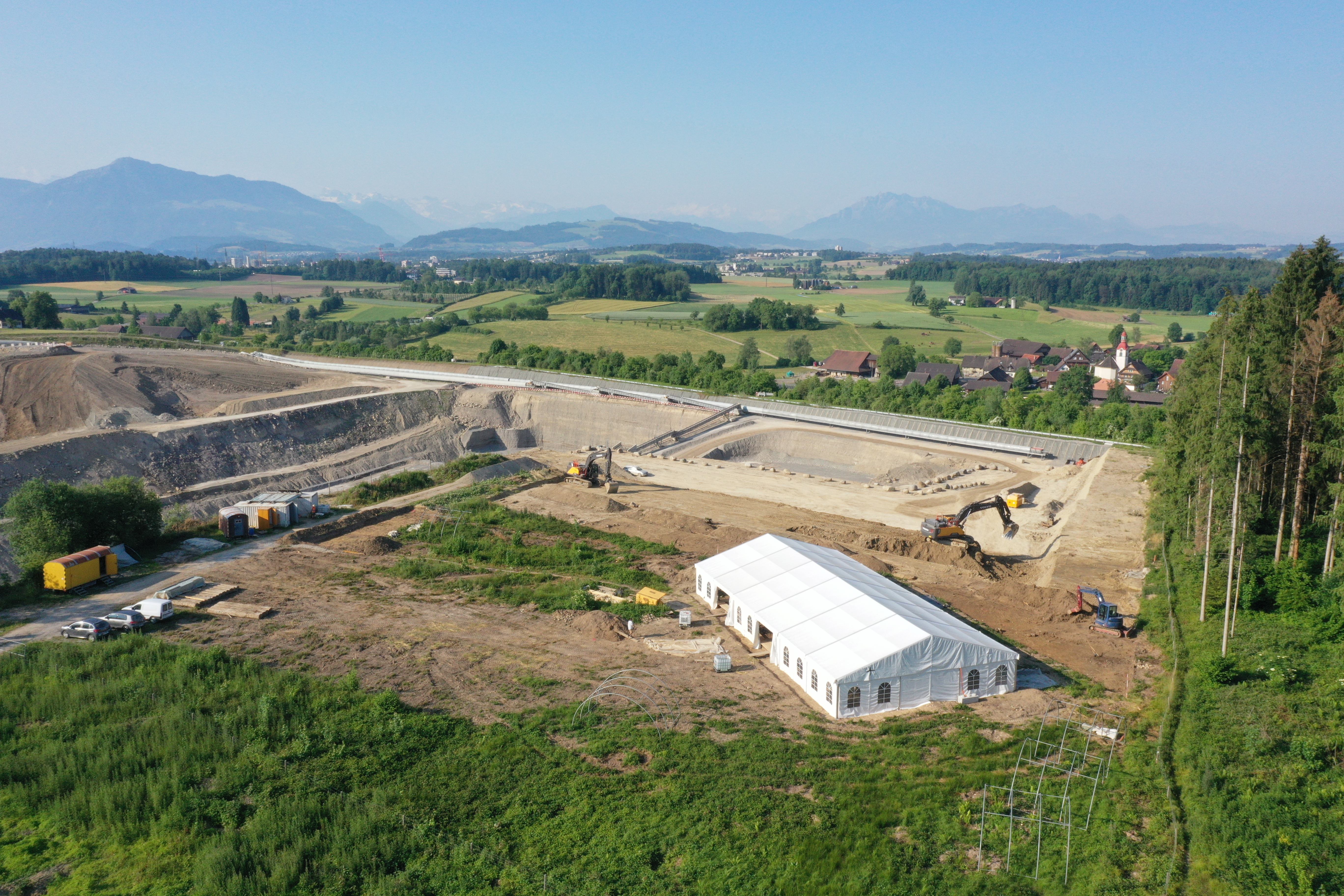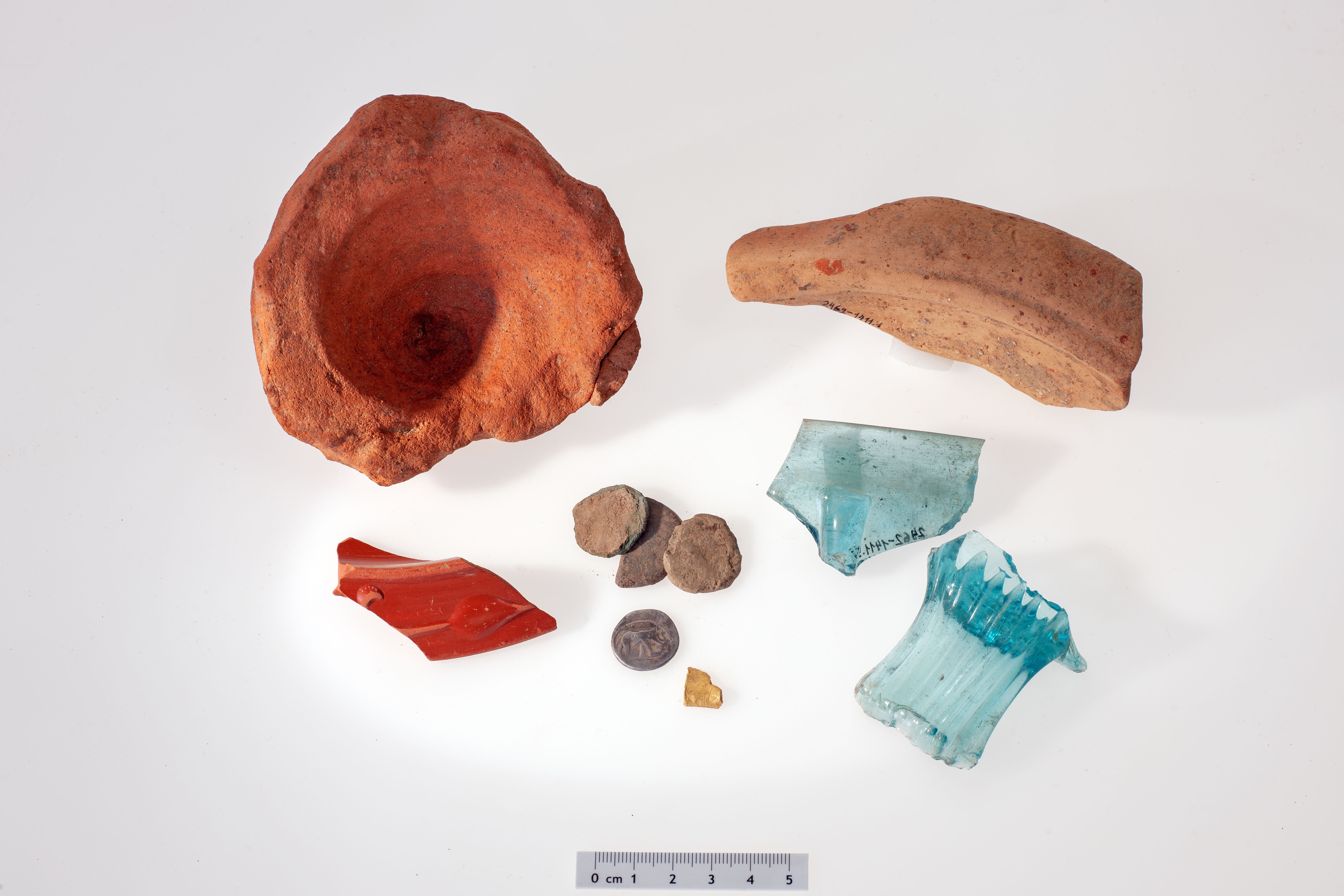New ‘archaeological sensation’ could reveal full extent of ancient Roman empire
‘What is also astounding is the relatively good preservation of the remains’
A new “archaeological sensation” unearthed in Switzerland recently could provide new insights into the extent to which the ancient Roman civilization was spread across Europe.
Archaeologists at a gravel quarry site in Switzerland’s Canton of Zug are carefully unearthing Roman-era stone walls built around 2,000 years ago. The walls seemingly cover an area of at least 500 square metres and belong to a building complex with different rooms.
“The discovery is an archaeological sensation,” according to Canton of Zug’s Office for the Preservation of Monuments and Archaeology, which said the findings will provide key insights about the Romans in pre-alpine Central Switzerland.
Scientists noted the region’s elevated location may have offered the inhabitants of the building complex “a view of the surrounding landscape”.
Archaeologists also unearthed a large numbers of iron nails at the site, hinting there may have been wooden construction on the wall foundation.
“We were also amazed that the top bricks were even visible above ground,” said Gishan Schaeren, head of the Department of Prehistory and Prehistoric Archaeology at Archaeology Society Zug.
It remains unclear what function the monumental building enclosed by the walls had.
“Is it a villa with a view or a temple building? Finding out this will be the subject of further investigation,” researchers said.
“Roman buildings of similar dimension were last excavated in Cham-Heiligkreuz almost 100 years ago,” explained Dr Schaeren.

Such architectural relics from the Roman period are only known so far to a few in the pre-alpine region, in contrast to other regions, according to scientists.
The new discovery, according to researchers, can reveal further insights on the civilisation’s growth in the area.
“What is also astounding is the relatively good preservation of the remains,” said Christa Ebnöther from the University of Bern in Switzerland.

In the same site, archaeologists have also unearthed a settlement from the Middle Bronze Age as well as graves from the late Bronze age, indicating it was a region of popular interest for inhabitants across history.
“The fact that the gravel hill near Oberwil was already inhabited several times thousands of years before the Romans also testifies to the attractiveness of this location,” researchers wrote in a statement.
They also found everyday objects as well as more special objects at the site, including tableware, artfully made glass vessels and also gold fragments that likely belonged to a piece of jewellery.
“Fragments of amphorae, in which, among other things, wine, olive oil and fish sauce reached the Mediterranean to the Abed Forest near Cham, testify to the far-reaching trade in Roman times,” experts noted.
“These puzzle pieces make it possible to track down the lives of our ancestors and better understand our history,” said Karin Artho, Head of the Office for Monument Preservation and Archaeology.
Join our commenting forum
Join thought-provoking conversations, follow other Independent readers and see their replies
Comments


Bookmark popover
Removed from bookmarks